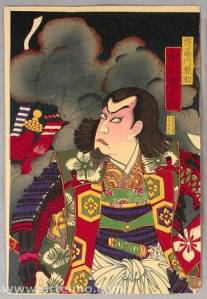Japanese Art and the Harsh Reality of Life: Tsukioka Yoshitoshi
Lee Jay Walker
Modern Tokyo Times
The artist Tsukioka Yoshitoshi literally lived in two worlds and this applies to not only the Edo Period and Meiji Period but also to his chaotic lifestyle. However, despite this, Yoshitoshi produced stunning art and he was extremely productive. Yoshitoshi was born in 1839 and his early life belonged to the feudal ways of the Edo Period. Yet gradually Japan witnessed internal political and cultural convulsions. These internal convulsions culminated with the Meiji Restoration of 1868, therefore, the onset of modernity was a major challenge for all ukiyo-e artists.
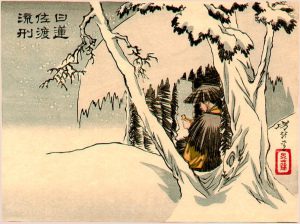
Yoshitoshi, like many ukiyo-e artists, was extremely productive during his lifetime because he produced approximately 10,000 prints. However, the technological changes in Japan and outside influence of art were making rapid inroads into the old world. Therefore, all ukiyo-e artists of this period had to adapt to this new reality. Yoshitoshi fully understood that times were changing and it is clear that many aspects of his art were innovative. John Stevenson speaks kindly about his art because he states that: “Yoshitoshi’s courage, vision and force of character gave ukiyo-e another generation of life, and illuminated it with one last burst of glory.”

Many other individuals also speak with fondness towards Yoshitoshi because he took the challenge head-on and simply responded by utilizing his fantastic talent. Therefore, when individuals view his rich legacy it is clear that the ukiyo-e world of Ando Hiroshige and Katsushika Hokusai was very different.
However, despite the innovation of Yoshitoshi in the art world and adapting to modernity, his biggest demons were internal because he suffered many dark periods. Indeed, in 1871 he was shackled by severe poverty and until his death in 1892 he struggled with severe bouts of depression.
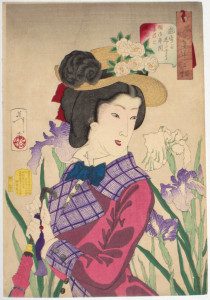
At one point, these internal problems nearly tipped Yoshitoshi over the edge because he had a mental breakdown in the early 1870s. Therefore, you had an artist facing mental problems, deep scars from the past, severe poverty and a rapidly changing world that would impact greatly on ukiyo-e in a detrimental way. Also, the two ladies who cared deeply about Yoshitoshi would be dragged down by him because both would enter the brothel world in order to help him. This was not unusual in Japan during times of severe poverty but the passion that these ladies had for Yoshitoshi wasn’t fully met the other way.
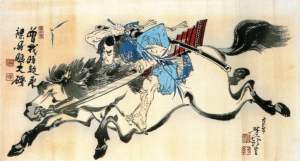
In 1884 major changes occurred for Yoshitoshi because he got married and from this period until 1891 he produced some amazing art pieces. Yet the early life of Yoshitoshi remained firmly within his soul because in 1891 he had a major bout of depression and a severe mental breakdown. However, this time, he would not recover because on June 9, 1892, he passed away at the age of 53.
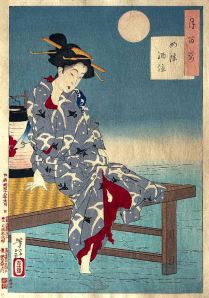
Yoshitoshi did manage to go home for the last few months of his life but he was nothing more than a tormented shell. Therefore, the ukiyo-e world lost a great innovator because of the ravages of mental depression and terrible health issues.
Like I stated earlier, the years after his marriage in 1884 were extremely fruitful and this notably applies to One Hundred Aspects of the Moon (1885-1892) and New Forms of Thirty-Six Ghosts. Also, in the same period, he created other notable works of importance. Given this reality, Yoshitoshi was reaching fresh heights prior to 1891, therefore, one can only wonder about what he would have produced in the future if his health had held out.
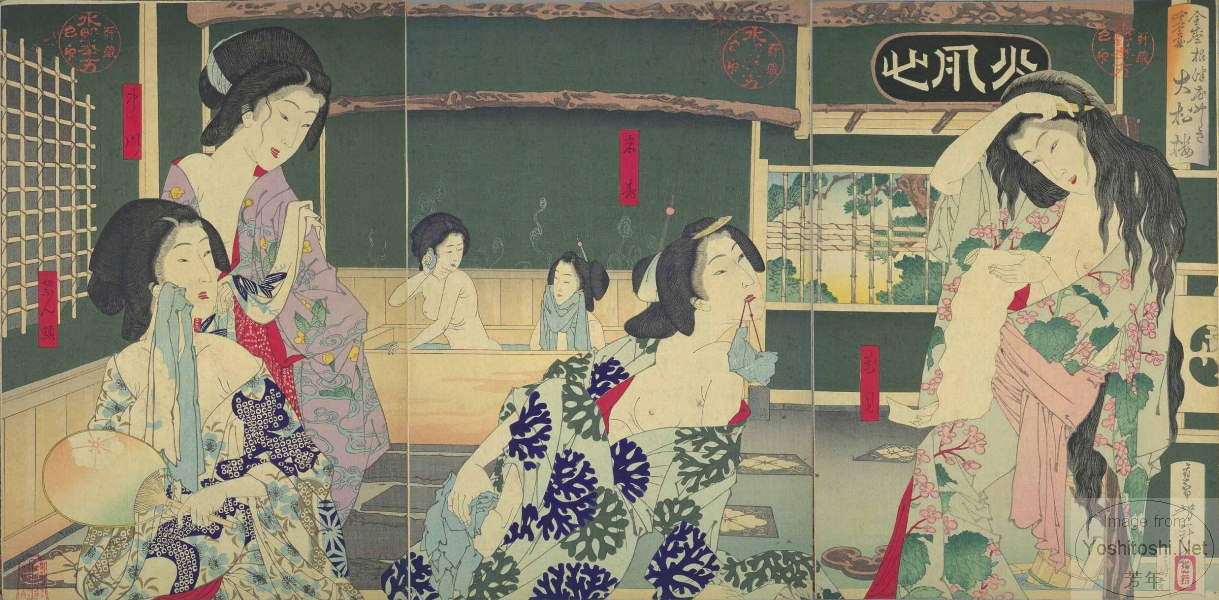
In an earlier article, I comment, “The reputation of Yoshitoshi continues to grow in the modern world and in all truth, it is not based on hype because Yoshitoshi was an amazing artist. Therefore, he fully deserves to be remembered for this ….. Yoshitoshi was working against the onset of modernity because with the mass production of Western standards, for example in lithography and photography; he was fighting a losing battle. However, he did keep the bursting dam at bay but the spark of passion could not keep the onrushing water out. Therefore, Japanese woodblock prints, that had been a beacon for Japanese art, succumbed to the onset of modernity and Yoshitoshi – and countless others – must have felt the pain deeply.”
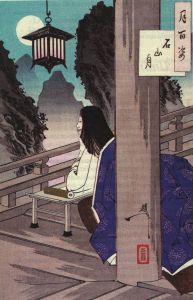
The life of Yoshitoshi represents the chaotic period that he belonged to. After all, you had many winners but also many losers who could not adapt to the changing world. However, this wasn’t the case for Yoshitoshi because he was a great innovator. Therefore, the real problems for Yoshitoshi were mental issues and severe poverty – and both factors made the situation even more dangerous. Yet, despite all the odds, Yoshitoshi leaves behind a lasting legacy because today his talent is rightly being reviewed and seen in a fresh light. Yoshitoshi was “a bridge” that connects two worlds and his ukiyo-e highlights the intense struggle to survive during the Meiji period.
http://yoshitoshi.verwoerd.info/

Modern Tokyo News is part of the Modern Tokyo Times group
DONATIONS to SUPPORT MODERN TOKYO TIMES – please pay PayPal and DONATE to sawakoart@gmail.com
http://moderntokyotimes.com Modern Tokyo Times – International News and Japan News
http://sawakoart.com – Sawako Utsumi personal website and Modern Tokyo Times artist
https://moderntokyonews.com Modern Tokyo News – Tokyo News and International News
http://global-security-news.com Global Security News – Geopolitics and Terrorism
PLEASE JOIN ON TWITTER
https://twitter.com/MTT_News Modern Tokyo Times
PLEASE JOIN ON FACEBOOK
https://www.facebook.com/moderntokyotimes
Some art and cultural articles by Modern Tokyo Times are republished based on the need to highlight the unique nature of Japan to our growing international readership.
